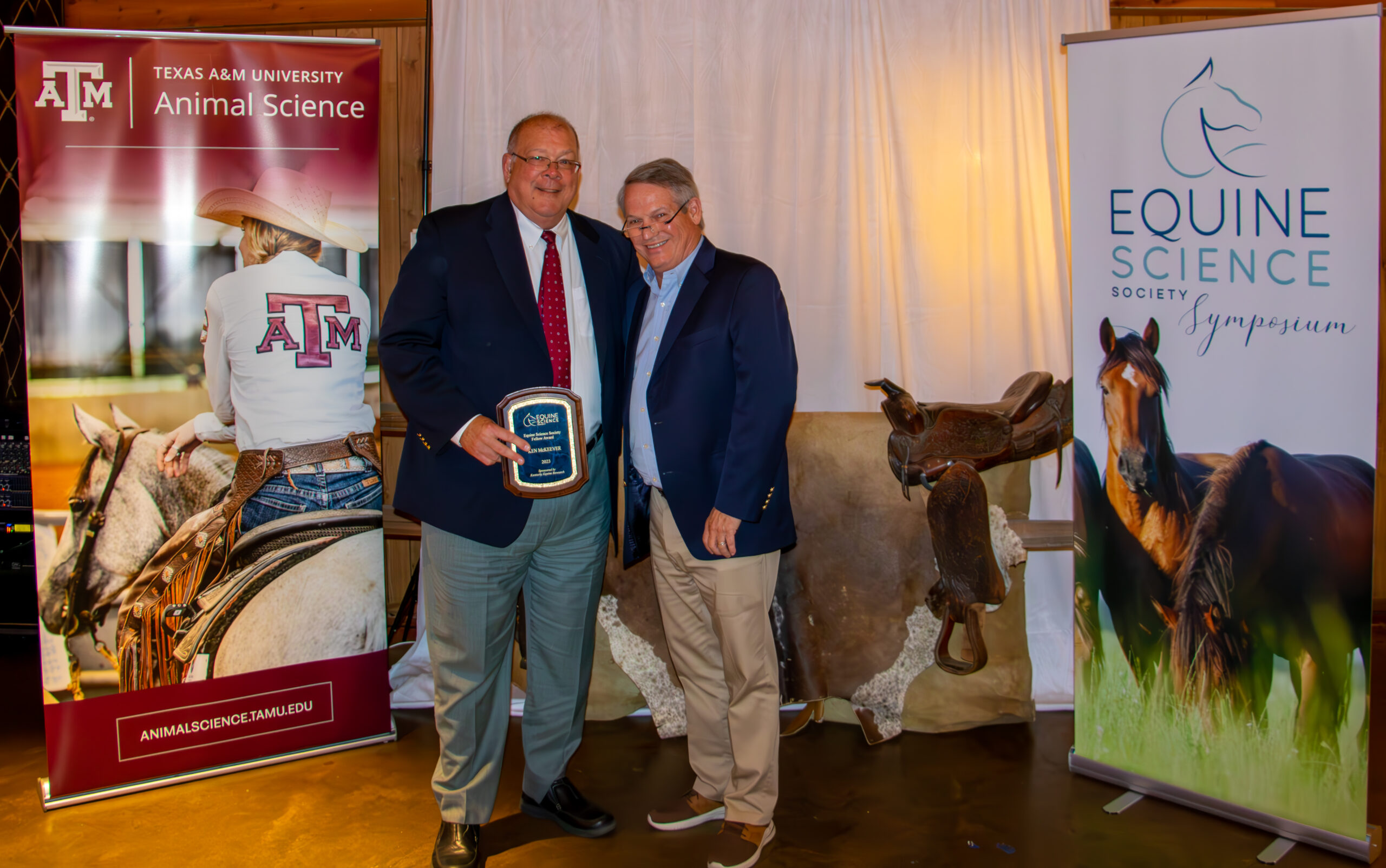NEW BRUNSWICK, NJ – Dr. Kenneth Harrington McKeever, FACSM, FAPS, Professor in the Department of Animal Sciences at Rutgers University, and Associate Director of Research at the Rutgers Equine Science Center, was elevated to the rank of Fellow of the Equine Science Society during the 2023 Equine Science Society Symposium’ Awards Banquet in Grapevine, Texas, on Friday, June 9, 2023.
The rank of Fellow of the Equine Science Society is an elite member status reserved to recognize distinguished service to the horse industry and to the Equine Science Society over the member’s many years of service.

“Dr. McKeever epitomizes what a Fellow of the Equine Science Society should represent in his long-standing contributions to the equine science field, which are vast; having truly changed the world of equestrian sports and its integrity, including horse racing,” said Dr. Karyn Malinowski, Founding Director of the Rutgers Equine Science Center. “I know of no other equine scientist who is more deserving of being named a Fellow by the Equine Science Society than Dr. Ken McKeever; he is truly extraordinary and will continue to give back to our profession for years to come.”
On a basic level Dr. McKeever’s research has focused on comparative exercise and cardiovascular physiology with a particular interest in the effects of aging on the integration of the cardiovascular, renal, and endocrine systems in the control of blood pressure, blood volume and fluid and electrolyte balance. On an applied level, his research has focused on the effects of performance enhancing practices on the physiological responses of the equine athlete.
These studies are just part of the more than 200 book chapters, journal articles and proceedings papers, and more than 60 abstracts that have advanced the understanding of the athletic horse.
“I am humbly honored to receive this award from the Equine Science Society,” said Dr. McKeever, “and thank those who nominated me and all the colleagues, students, and horses who have contributed to our efforts to improve the welfare of the equine athlete.”
McKeever’s other accomplishments include: President of the Equine Science Society, fulfilling his two-year role as the leader of the organization this past Thursday, as well as serving as the Editor-in-Chief of the journal Comparative Exercise Physiology, as a Fellow of the American College of Sports Medicine, and as a Fellow of the American Physiological Society.
In his spare time, McKeever plays water polo goalie at the local, national, and international level, and is also an amateur genealogist and historian.
For additional information, contact Kyle Hartmann at kylehart@njaes.rutgers.edu or 848-932-9419.
About The Equine Science Society
The Equine Science Society (ESS) developed from an interest in sharing horse nutrition research which led to the first symposium held in 1968 at the University of Kentucky. ESS was officially formed in 1970 under the name Equine Nutrition and Physiology Society. In 1975, the society drafted its first by-laws, and in 2003, the society changed its name to ESS to more accurately reflect the diverse equine-related disciplines that were encompassed by the society. Since then, ESS has been a cornerstone for equine professionals to connect and share their research, ideas, and expertise on a wide range of equine-related topics, including biosciences, exercise science, genetics, nutrition, reproductive physiology, production and management, and teaching and extension.
The objectives of ESS are to: promote quality research in the areas of equine science; establish effective communication among researchers, teachers, extension, and production personnel regarding equine science; conduct periodic symposia; and cooperate with other organizations having similar or related interests.
Over the years, ESS has established itself as one of the preeminent, internationally-recognized scientific equine organizations, advocating for and advancing the care of equines through extensive contributions in the areas of equine research, teaching, and extension. The future of ESS continues to shine bright with a strong commitment to professional development, student involvement, sharing of research-based information, membership communication, and collaboration opportunities, and will continue to evolve to address the diverse needs of the equine industry.
